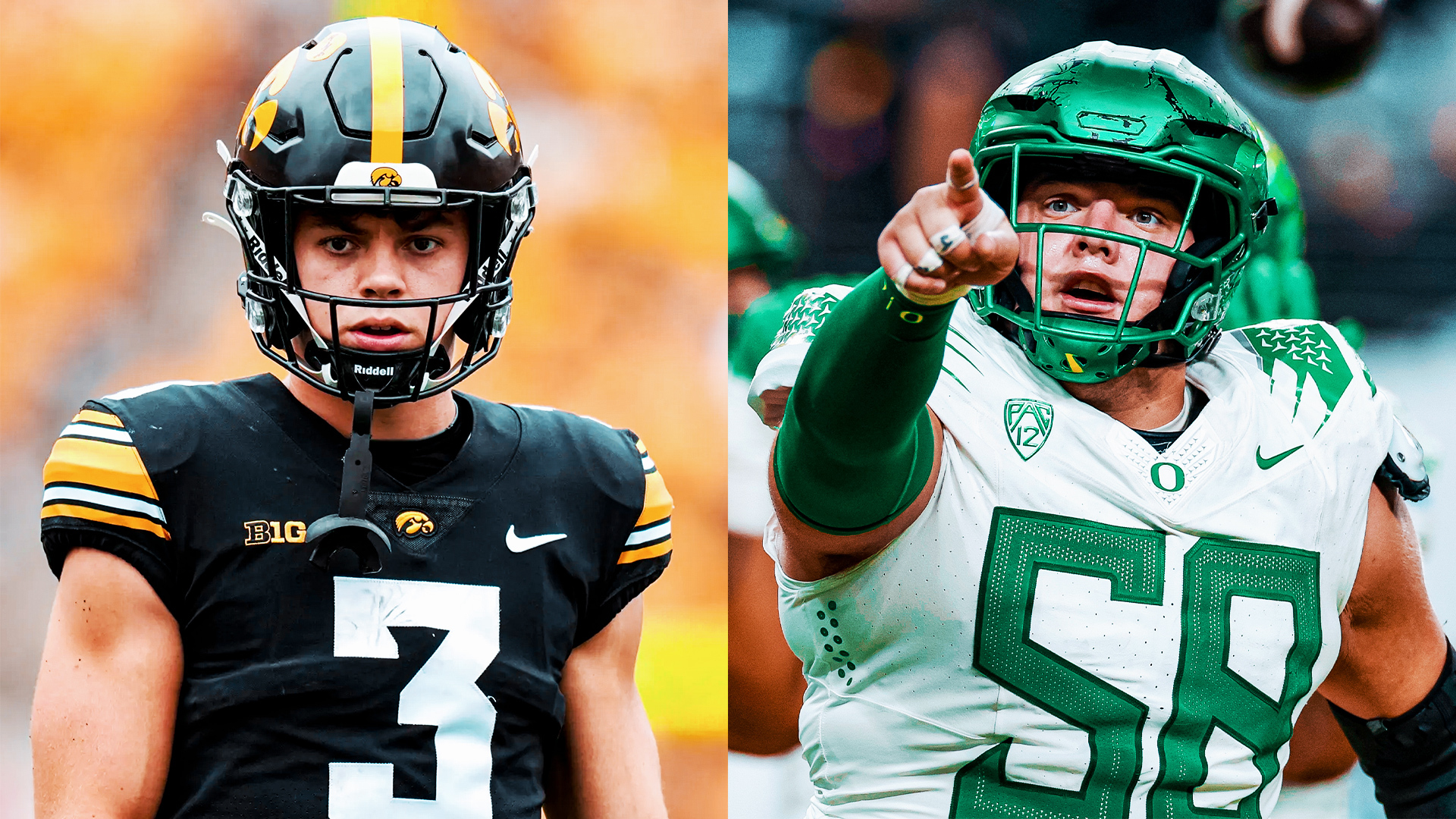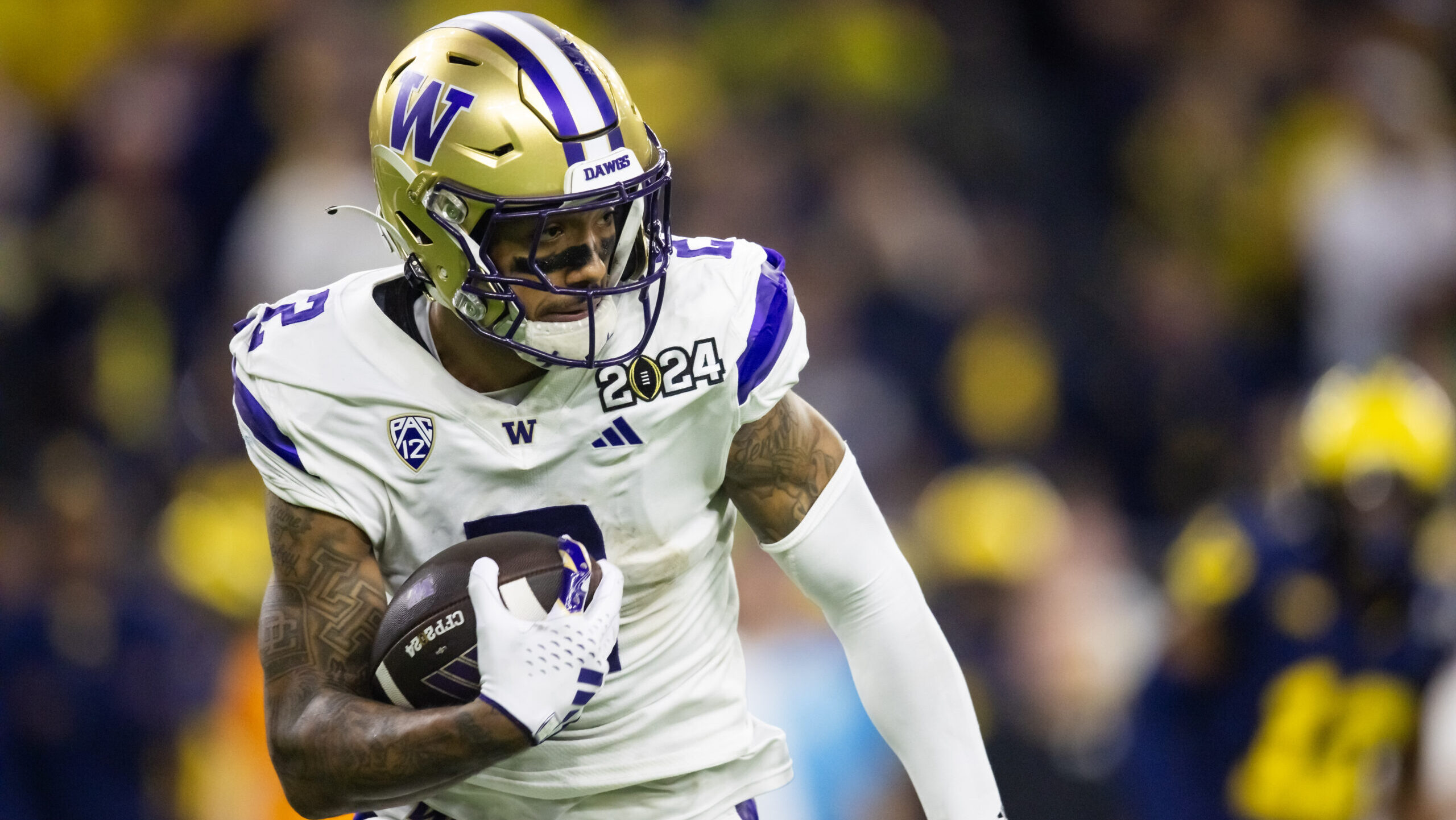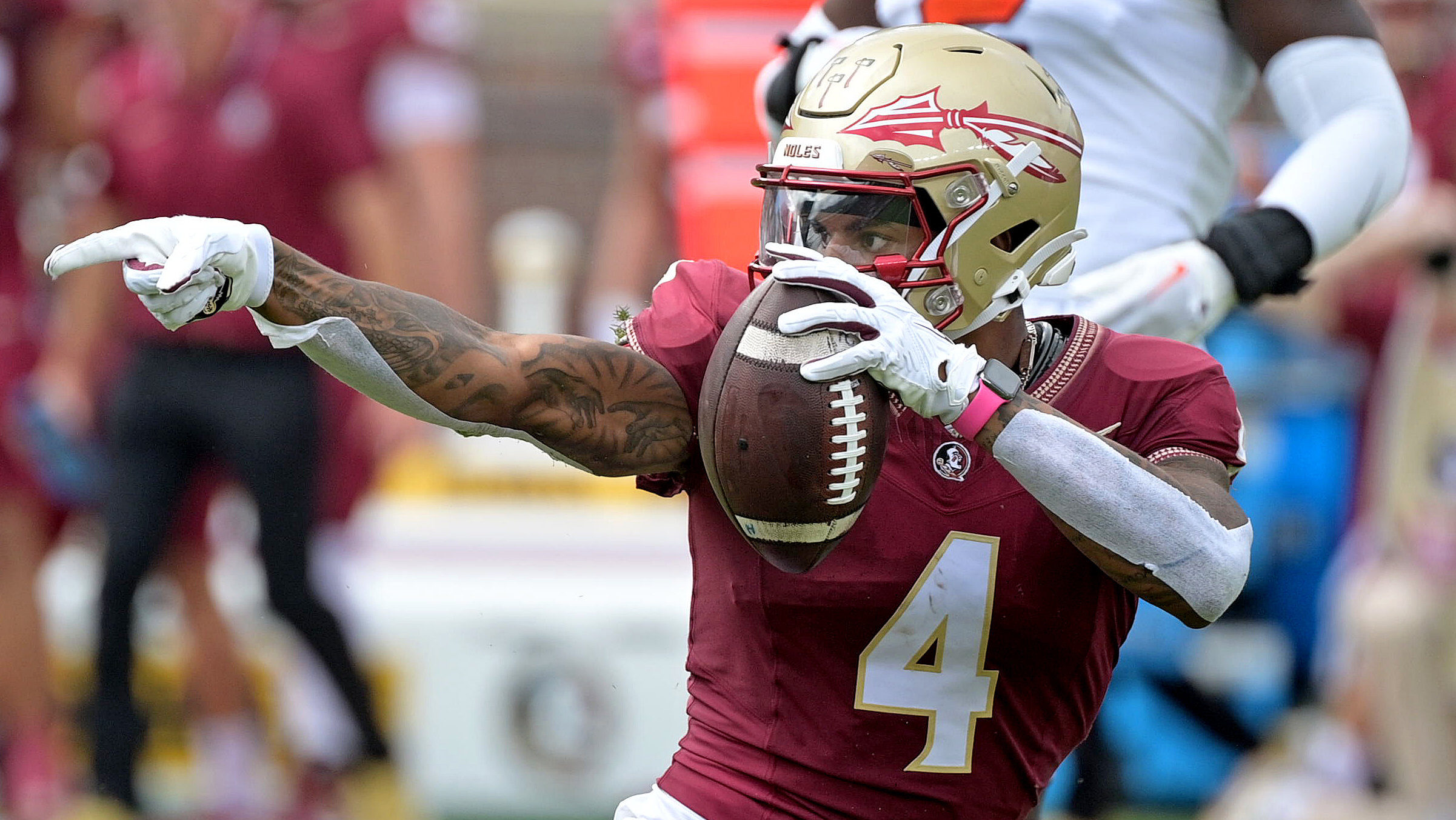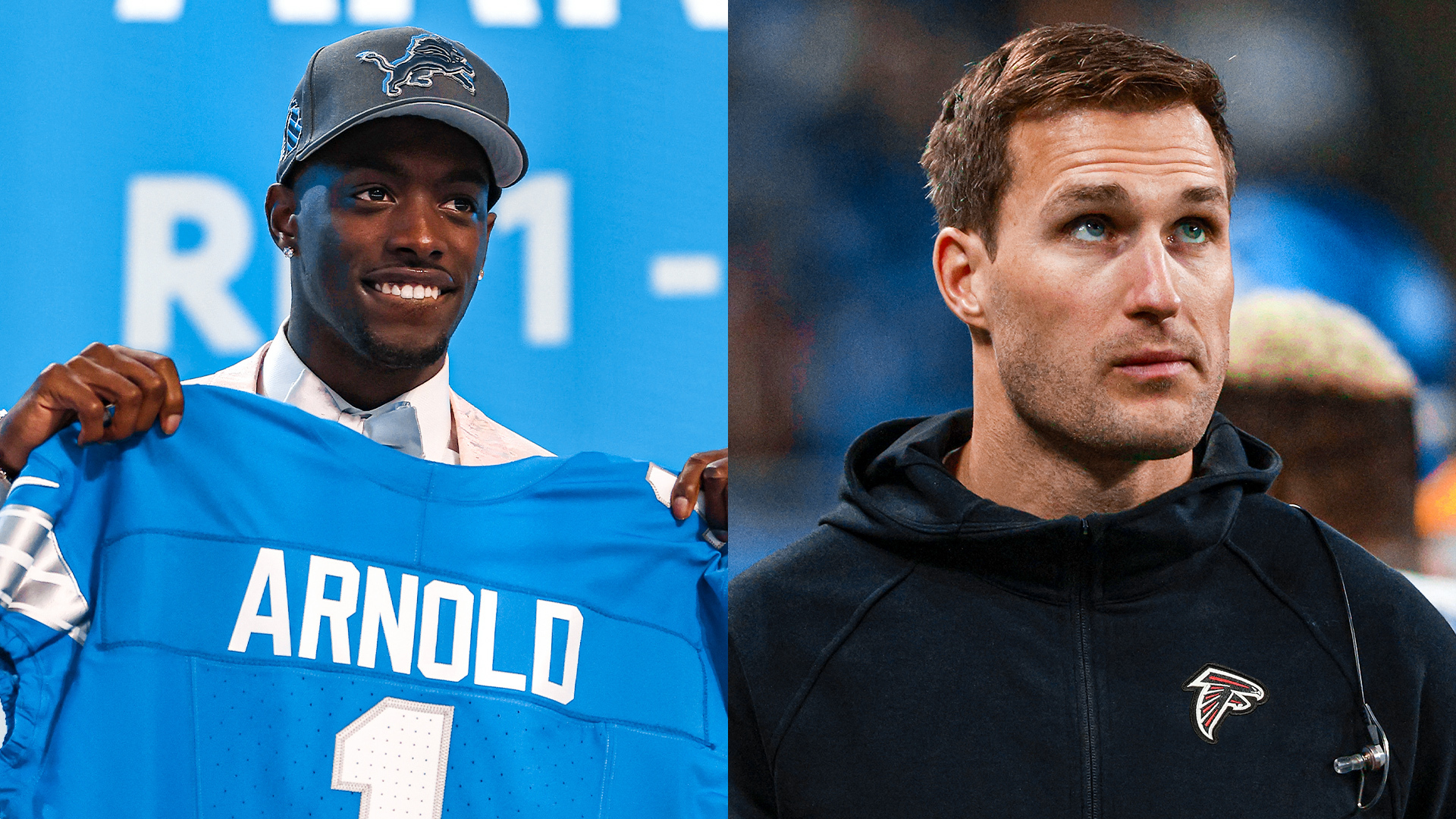Analysis
7/17/23
6 min read
Breaking Down Saquon Barkley, Josh Jacobs, Tony Pollard Negotiations
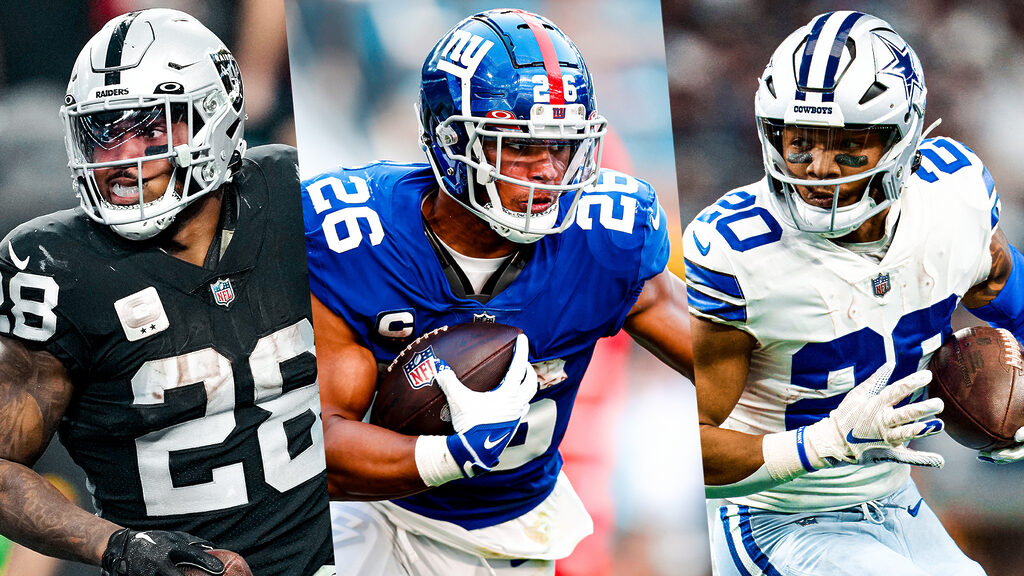
Often with NFL contract negotiations, fans are on the outside, relying on media reports for their updates. In these situations, it becomes hard to define who's being fair and who's doing the right thing.
Three star running backs failed to reach long-term agreements with their teams on Monday. Here's a brief look at each set of negotiations, with insight into the inner workings of the NFL contract talks that take place between executives, agents and players.
Saquon Barkley, New York Giants
In the case of the New York Giants' negotiations with Saquon Barkley, it's a little easier to decipher because both parties have intimated what's been offered — enough so that we can make a judgment. Barkley seems to be the more reasonable party here and the party more willing to make a fair compromise.
Here's why.
Other than Christian McCaffrey, there are about half a dozen really good running backs who signed new contracts in the past three seasons. And, at that time, they were the highest-paid running backs in the NFL. They all got about $12 million per year.
My point is simple: if you just took that $12 million average and account for the fact that the cap has gone up almost $50 million since then, in today's value, the price of a top running back should be just short of $15 million per year. Now, teams may claim they won't go as high as McCaffrey's deal, but Barkley is as good or better than the group of players who got $12 million per year.
There's a little bigger injury risk for Barkley, but he's coming off a good, healthy year. For Barkley's camp, it's fairly clear cut to present the facts about the players earning $12 million annually and argue that his average should be around $15 million per year.
Still, the Giants seem clear that their offer has and will be consistently below that mark.
Barkley is one player that I have some of the most sympathy for. He is entitled to a lot more than the Giants have indicated they'll offer and have offered. And, using the simple calculation I just went through, it's clear they haven't been exactly fair.
Josh Jacobs, Las Vegas Raiders
The Las Vegas Raiders are trying to make Josh Jacobs feel respected enough that he shows up to camp, plays on the tag, and then the Raiders let him go next offseason.
If you’re Jacobs’ agent, you’re somewhat stuck. That’s a bad place to be in. His agent could get the Raiders to agree not to tag Jacobs next season if he attends camp. But Jacobs hasn’t signed the tag, so he won’t get fined for missing camp.
I think Jacobs will try to be as forceful as he can with as little leverage as he has and at least miss a chunk of camp. He should be careful not to miss too much because there is a correlation between missing a lot of camp and getting hurt.
If Jacobs is looking for a long-term contract next season, then he’s wise to make a statement by missing some of camp, but not too much. I wouldn’t push because he’ll need to have a season like he did last year to get the contract he wants during the next offseason.
Tony Pollard, Dallas Cowboys
The only surprise with this negotiation is the Dallas Cowboys' propensity to cave when they get close to deadlines. That's what happened with Ezekiel Elliot. By not getting a deal done with Tony Pollard, they risk losing a player that they seem to want, which is not their history. Sooner or later, they come around.
Remember how long Dak Prescott had to wait for his deal? That's their M.O. You wait, but once you get near the deadline — if you're a player they really like — they'll give in.
This time was different.
The reason is likely because the tag is probably as high or higher than what they want to pay Pollard on a long-term deal. And it's almost impossible to get a player, even just from a respect perspective, to accept a deal that would earn them less than they might on the tag.
This doesn't mean Pollard won't be a Cowboy in the long run. He could play this year and Dallas still may be the best team for him next year, but surprisingly, they didn't get a deal done.
From the Cowboys' perspective, it shows that they have a little more discipline right now than they've had in the past. This is probably a good thing roster-wise but might not necessarily serve them well going forward. It's a strange thing in the league — once you're thought of as a slot receiver or a nickel running back or a backup running back, it's tough to dramatically change that perception all the way from backup to one of the top players in the league.
It's hard for people to make sense of the transition. Though it provides an opportunity for teams to pick up a player at a good price.
We see it with Austin Ekeler. He's outplayed his contract by so much, yet he couldn't get the Los Angeles Chargers — or any other team — interested in paying him more. That will likely change when he hits the market next year, especially if he has another good year. But it's unusual to see the perception of a player's role change dramatically, even though it isn't right.
That's part of the problem Pollard had, and it may have limited the Cowboys in the end. Dallas needs to think about his worth because if you look at his stats and performance, he deserves to be paid like the best. But because we've collectively labeled him in a different way for so long, it may be hard for that to take place.
It wouldn't be the first time we've seen it happen.
Joe Banner is a former front office executive for the Philadelphia Eagles and Cleveland Browns. He was a part of an Eagles franchise that made a Super Bowl and played in four NFC Championship Games. Follow him on Twitter at @JoeBanner13



